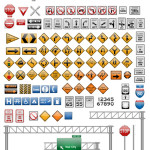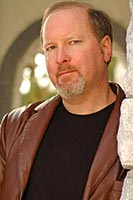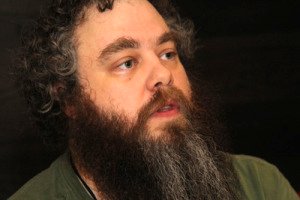 I love the theme this month and the stories that have been shared. It reminds me that we all struggle in life and in our chosen profession. I do wonder if any non-writers reading these posts might assume we’re all lunatics sharing our stories in an online Writers Anonymous meeting. We’ve proven it’s a tough, crazy journey on the road toward publication, but we keep plugging away, pursuing the dream, chanting, “Keep at it, and we’ll get there.”
I love the theme this month and the stories that have been shared. It reminds me that we all struggle in life and in our chosen profession. I do wonder if any non-writers reading these posts might assume we’re all lunatics sharing our stories in an online Writers Anonymous meeting. We’ve proven it’s a tough, crazy journey on the road toward publication, but we keep plugging away, pursuing the dream, chanting, “Keep at it, and we’ll get there.”
Well, we’ll get there as long as we’re open to learning and growing. As they say, “Continuing to do the same thing while expecting different results is the definition of insanity.”
So we’re either on our way, or we’re nuts.
Growing up I always dreamed of being a writer and I hand-wrote hundreds of pages of drafts as a teen-ager. But life got in the way and I pretended to be normal and pursued other interests through college and the first years of family and career. Then through a series of events in 2004 the desire – the need – to write reignited, and I embraced all those imaginary friends I’d been pretending not to listen to for so long.
I remembered some cool ideas I had worked on all those years ago and thought, “Yeah, I’ll just write that. I read a lot, so how hard could it be?”
Now almost ten years and millions of words later, I laugh every time I think of that naïve wannabe writer sitting down and typing out those first words, “It was a dark and stormy night. . .”
Actually, those weren’t the first words, but they might as well have been for how terrible they were. But I didn’t know better so I wrote, and then I re-wrote. For almost four years I worked on that monstrous first novel that stood at about 300,000 words despite multiple re-drafts. I confidently sent out query letter after query letter to agents, and accumulated scores of rejection letters.
A wiser man might have quit at that point.
Actually, a wise man would have quit after his wife read the first frantically written 80 pages the very first weekend. With love in her eyes, she said as kindly as she could manage, “This stinks.”
But real writers are slaves to the Muse, or we are tired of people looking at us funny when we talk to ourselves. Or maybe we’re just a lot more stubborn than most people, so I kept writing. The problem was I had no idea why the book wasn’t selling. I had no clue what was wrong with it. I mean, my mom loved it, so it had to be ready.
I didn’t even understand enough about writing to work on other projects on the side. I was blind, stuck in a place I could not get out of, but didn’t realize it. Think Maxwell Smart, but without Agent 99 to bail him out.
Thankfully I found a way out of that rut of insanity. I took the Professional Writers Workshop from David Farland.
Amazing. What a revelation. They actually train people to write! I’d been doing it all by pure gut instinct for years, and proving why there was a better way. In that writing workshop, Dave took the time to meet with me over dinner and discuss my project. Using small words, he explained some of the reasons why the book would never work – like it was waaaay too long. I learned many things in that class and some of my blind spots were revealed.
What a milestone! I finally understood some of the reasons why I was not yet successful.
If I were really humble, I would have appreciated that much honest insight into my many writing flaws. What really slapped me in the face though was the magnitude of the challenge I faced: Either walk away from the entire writing gig, angry that the industry didn’t understand a brilliant talent like mine – walk away offended and console my wounded pride by thinking “they’re just not ready for so much pure awesomeness.”
Or I could admit that first attempt amounted to the scribblings of an uneducated beginner not even smart enough to take a class for four years, and all the hard work I’d poured into that novel counted as practice. I’d written enough to qualify a couple times over for ‘the half million words of crap’ we’re told new writers need to complete prior to writing anything good. Over-achiever all the way.
So I had that going for me, which I took to mean everything I write now will be awesome.
Bottom line, the goal remained: I will be a professional writer. So I had to choke down my pride and, after surviving that, I took my first major step wearing big boy writer pants. I acknowledged that first epic fantasy story could be treated as an Epic Fail.
Then I threw it away. All 1000+ pages of blood, sweat and tears.
And I started again from scratch.
Out of pure stubbornness, I didn’t even start an entirely different story. There was a little more blood to squeeze out of that first stone. I loved the core of that original idea, so I salvaged some of the world building, some of the characters, and the nucleus of the conflict. Then I redesigned the plot from the ground up.
Like building modern-day Rome on top of the ancient catacombs.
The resulting story is infinitely better than the original, and I’m now working with an agent to try to find it a home. And instead of waiting forever for that sale to happen, I’ve actually moved on and since written three other novels and e-published one of them. Four others are in various stages of outlining, all of which I plan to complete next year.
Still plenty of blind spots, but I try to identify them one at a time. It’s more satisfying that way and a lot less painful – like lancing a single blister instead of performing open heart surgery on yourself.
Still, it was that first major awakening that salvaged my writing career. I’ll always be grateful to David Farland for beating me down so thoroughly (in a nice way). Now that I can walk again, I’m a better writer for the experience.
And now I’m looking forward to paying forward the favor. You may find me roaming the halls at conventions and workshops, looking for blind spots to destroy.
It’s for your own good. Some day you’ll thank me.


 I love the theme this month and the stories that have been shared. It reminds me that we all struggle in life and in our chosen profession. I do wonder if any non-writers reading these posts might assume we’re all lunatics sharing our stories in an online Writers Anonymous meeting. We’ve proven it’s a tough, crazy journey on the road toward publication, but we keep plugging away, pursuing the dream, chanting, “Keep at it, and we’ll get there.”
I love the theme this month and the stories that have been shared. It reminds me that we all struggle in life and in our chosen profession. I do wonder if any non-writers reading these posts might assume we’re all lunatics sharing our stories in an online Writers Anonymous meeting. We’ve proven it’s a tough, crazy journey on the road toward publication, but we keep plugging away, pursuing the dream, chanting, “Keep at it, and we’ll get there.” While I was in Brighton for the World Fantasy Conference, I was given the opportunity to hear Patrick Rothfuss read from one of his novels at a nearby bookstore. Patrick did a great job and his humor and wit worked well with the foreign audience giving him plenty of material to work with. By sheer chance I was given a seat in the front and after the reading I decided to stay sitting and wait while everyone else lined up to get a book signed. What happened next amazed me.
While I was in Brighton for the World Fantasy Conference, I was given the opportunity to hear Patrick Rothfuss read from one of his novels at a nearby bookstore. Patrick did a great job and his humor and wit worked well with the foreign audience giving him plenty of material to work with. By sheer chance I was given a seat in the front and after the reading I decided to stay sitting and wait while everyone else lined up to get a book signed. What happened next amazed me.